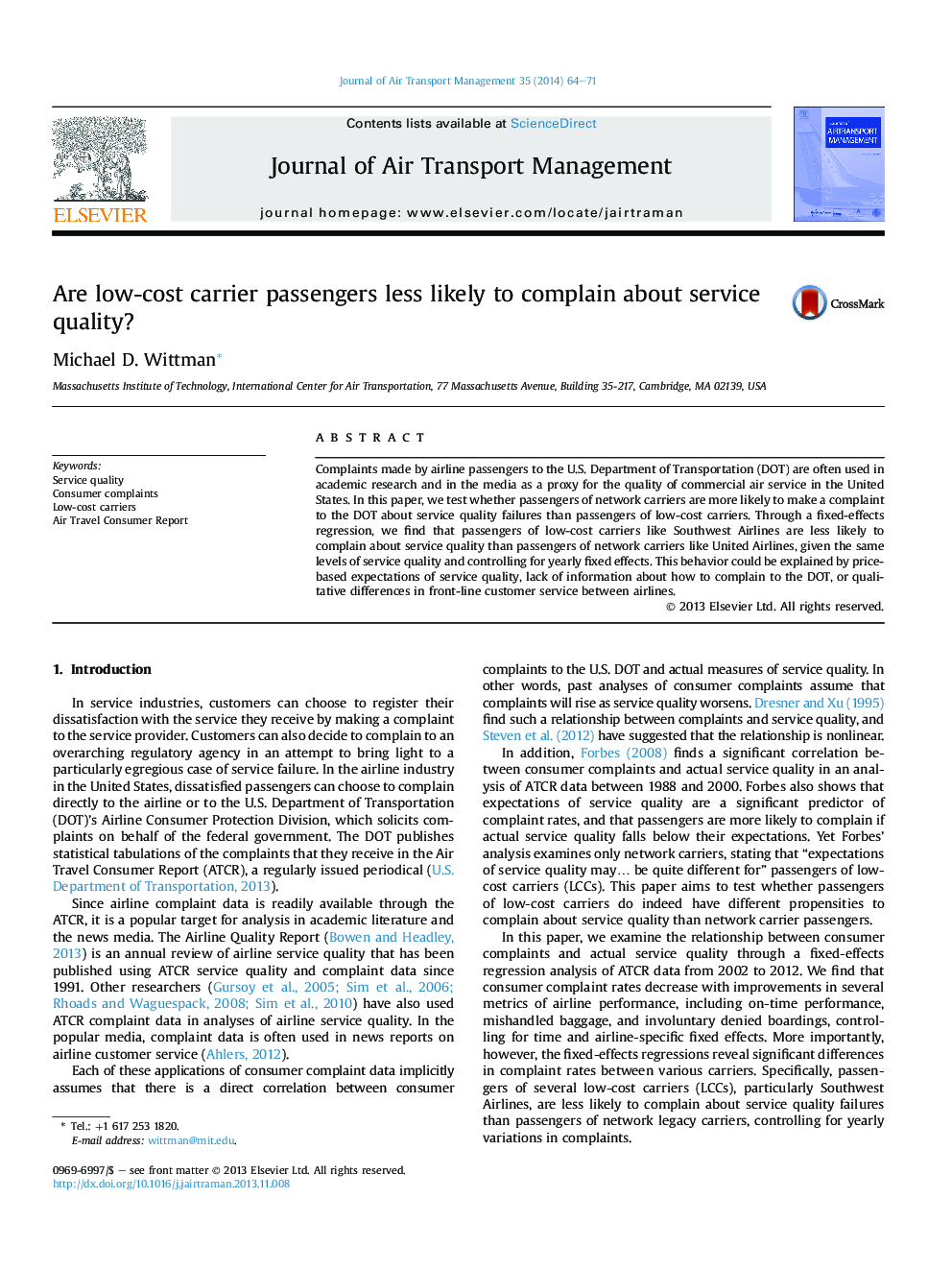| Article ID | Journal | Published Year | Pages | File Type |
|---|---|---|---|---|
| 1030872 | Journal of Air Transport Management | 2014 | 8 Pages |
•Differences exist in complaint rates among airlines with similar service quality.•A fixed-effects regression is used to investigate passenger complaint behavior.•Complaint rates increase as service worsens, controlling for airline fixed-effects.•LCC passengers complain less often than network carrier passengers about service.•Attributes of network carrier passengers may make them more likely to complain.
Complaints made by airline passengers to the U.S. Department of Transportation (DOT) are often used in academic research and in the media as a proxy for the quality of commercial air service in the United States. In this paper, we test whether passengers of network carriers are more likely to make a complaint to the DOT about service quality failures than passengers of low-cost carriers. Through a fixed-effects regression, we find that passengers of low-cost carriers like Southwest Airlines are less likely to complain about service quality than passengers of network carriers like United Airlines, given the same levels of service quality and controlling for yearly fixed effects. This behavior could be explained by price-based expectations of service quality, lack of information about how to complain to the DOT, or qualitative differences in front-line customer service between airlines.
